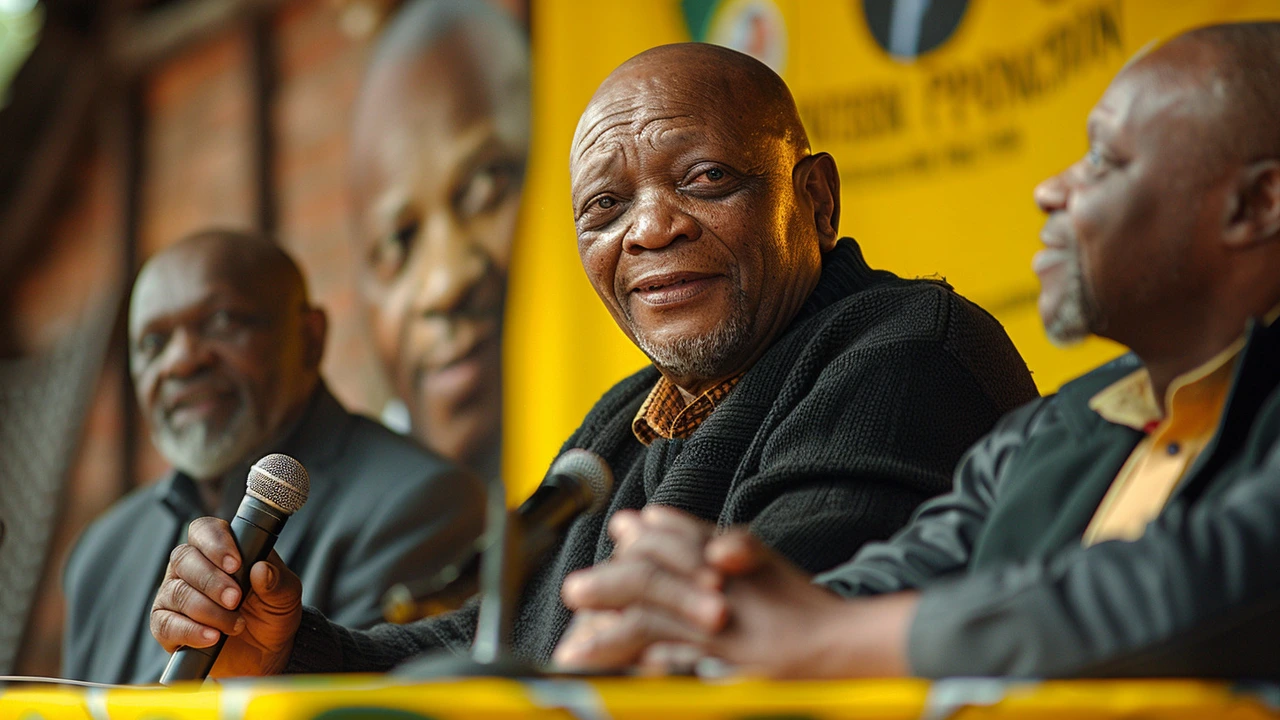
South Africa’s Political Crossroads
South Africa's ruling African National Congress (ANC) has recently announced its intention to form a 'Government of National Unity' (GNU) after losing its parliamentary majority for the first time since the end of apartheid. This historical shift comes as the ANC’s vote share plummeted from 57 percent in 2019 to just 40 percent in the recent election, signaling a substantial decline in public confidence. President Cyril Ramaphosa, addressing the ANC’s national executive committee (NEC), emphasized the urgent need for extraordinary leadership to navigate this critical juncture in South Africa’s political landscape.
Instead of establishing coalition agreements directly with rival parties, the ANC has opted for a broader multiparty alliance. This strategic move is aimed at reducing the party's dependence on any single political rival, showcasing a degree of political astuteness and framing the decision as being in the national interest. The concept of a GNU is not foreign to South Africa; the country experienced a similar arrangement between 1994 and 1997 when former President Nelson Mandela appointed FW de Klerk as his deputy, including cabinet ministers from both the National Party and the Inkatha Freedom Party (IFP).
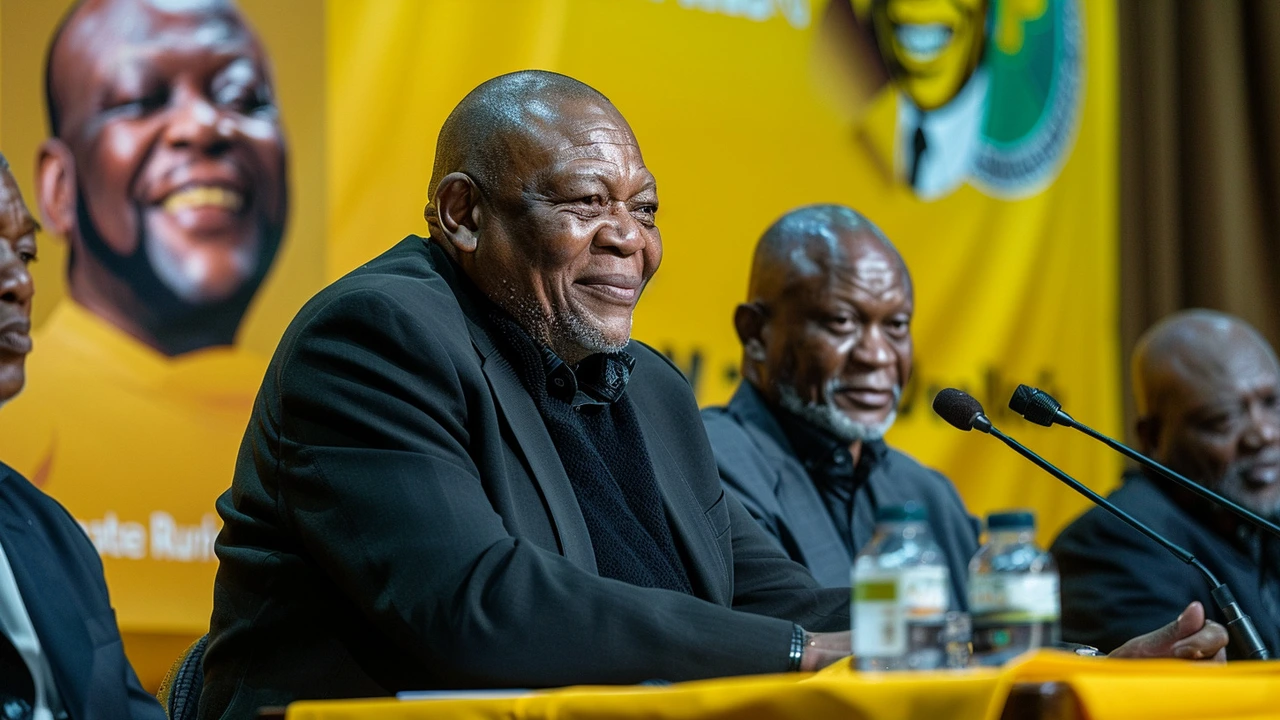
Complex Navigations and Strategic Choices
The ANC now faces the formidable task of negotiating an agreement with other parties before the June 18 constitutional deadline to elect South Africa’s next president. The loss of control over key provinces such as KwaZulu-Natal and Gauteng only amplifies the challenge. Party leaders have been locked in talks debating the most viable options for forming a stable government. However, this period of negotiation has also witnessed protests from youth organizations opposing a potential deal with the Democratic Alliance (DA).
The ANC’s relationship with the DA has been historically strained, with many ANC members dubbing the DA’s policies as 'anti-transformation' and 'anti-poor.' These tensions add another layer of complexity to Ramaphosa’s efforts in balancing coalition partners without compromising the ANC’s policy positions. The possibility of forming exclusive coalition agreements with the DA, Economic Freedom Fighters (EFF), or the uMkhonto we Sizwe Party (MK Party) presents a risk of internal discord within the ANC.
The Mechanics of a Grand Coalition
A grand coalition offers several strategic advantages. Engaging smaller parties while keeping the DA ‘in the tent’ mitigates the risk of becoming overly dependent on any single coalition partner. Additionally, this approach is likely to send positive signals to both domestic and international business communities, given the DA's reputation as being pro-business. In the recent election, the DA secured 21 percent of the votes, the MK Party gained 14 percent, and the EFF earned 9 percent. Despite these figures, a deal with the DA could potentially trigger internal rebellion within the ANC, challenging the liberation movement’s myths and traditions.
The details of this broad-based unity government are yet to be revealed, but Ramaphosa has assured that it will respect South Africa’s historical context and contemporary conditions. It is clear that any new government will have to confront significant domestic challenges such as stimulating economic growth, job creation, and tackling deep-seated structural inequalities. It is imperative to remember that South Africa is one of the most unequal societies in the world, grappling with extensive poverty and the highest unemployment rates, particularly affecting the youth.
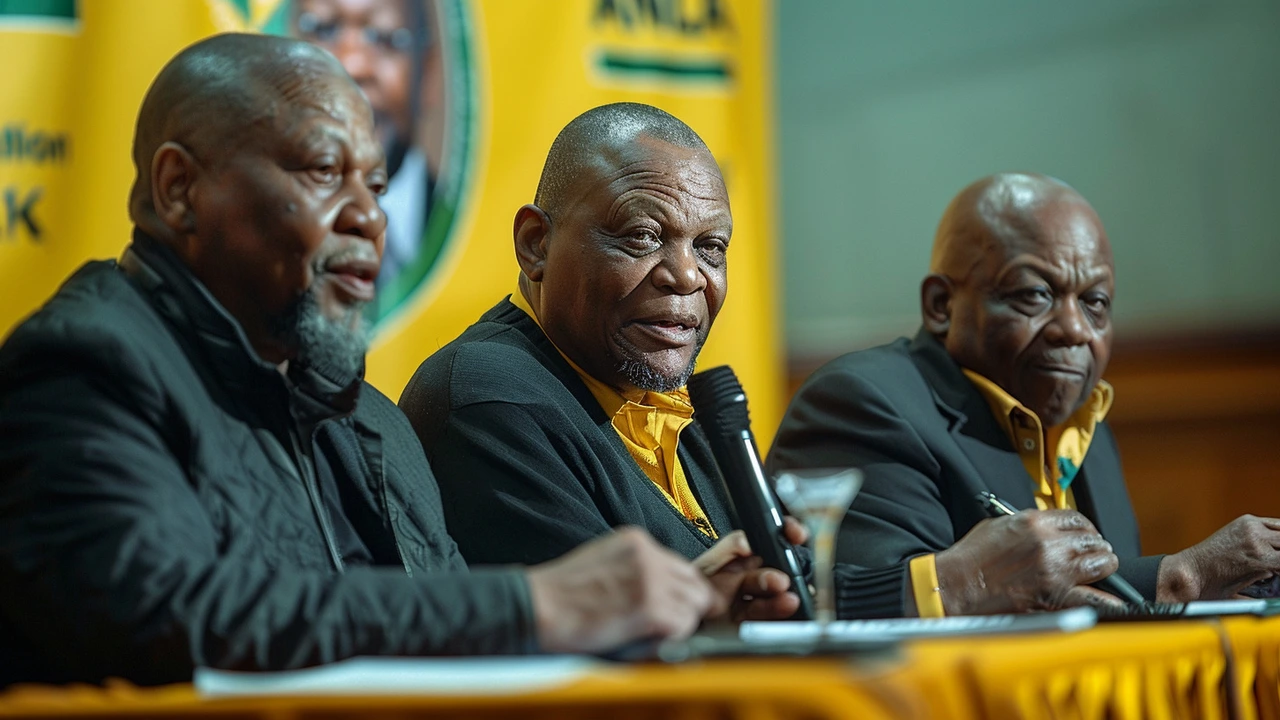
Economic and Social Imperatives
The country also faces chronic issues like frequent power outages and systemic corruption. Ramaphosa has emphasized that a GNU would commit to building an inclusive economy, creating jobs, eradicating crime and corruption, and enhancing service delivery. Yet, forming such a grand coalition will not be straightforward. The ANC will likely need to trade positions in the executive and parliament for support from opposition parties and may have to agree to reforms, such as adopting a stronger stance against corrupt party leaders.
The DA has indicated openness to dialogues with the ANC but has ruled out cooperation with the EFF. Meanwhile, the EFF has shown willingness to co-govern with the ANC but insists on being granted the deputy presidency in exchange for their support. The MK Party, on the other hand, refuses to join any ANC-led coalition if Ramaphosa remains at the helm and has campaigned on a platform advocating for a constitutional rewrite—something the ANC has staunchly opposed.
Ramaphosa’s Delicate Balancing Act
Amid these challenges, Ramaphosa stressed the critical importance of social cohesion following what has been a particularly toxic and divisive election campaign. Throughout these complex negotiations, the ANC has maintained that constitutionalism is a non-negotiable principle for any potential deal. The path ahead for Ramaphosa and the ANC is fraught with difficulty, as they navigate through political strategizing and negotiations to form a government that meets South Africa’s urgent needs while upholding democratic principles.
Creating the envisioned grand coalition will require not only political finesse but also a genuine commitment to the nation’s broader interests over partisan gains. The next steps taken by the ANC will be pivotal in shaping South Africa’s political and social landscape for years to come. As the political drama unfolds, South Africans and the world alike will be closely watching the ANC’s every move, their alliances, and the resultant policies that will aim to chart a path toward a more equitable and stable future.
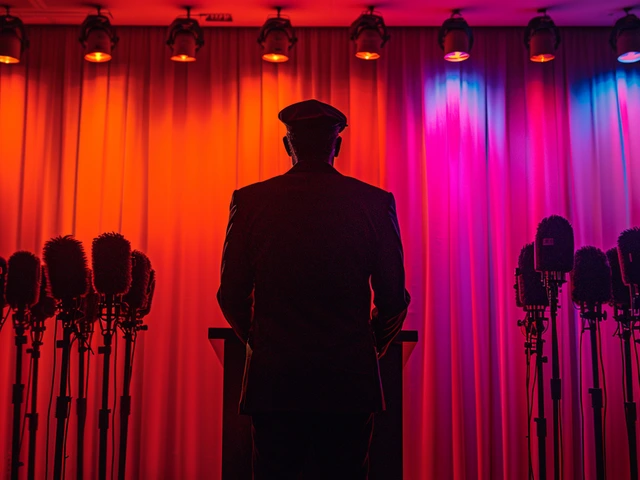
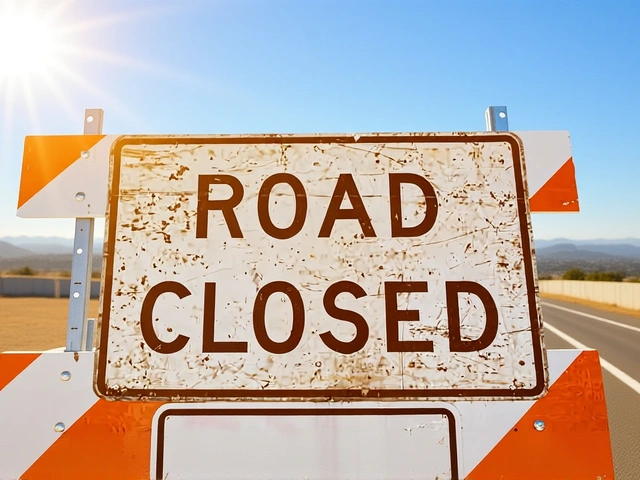
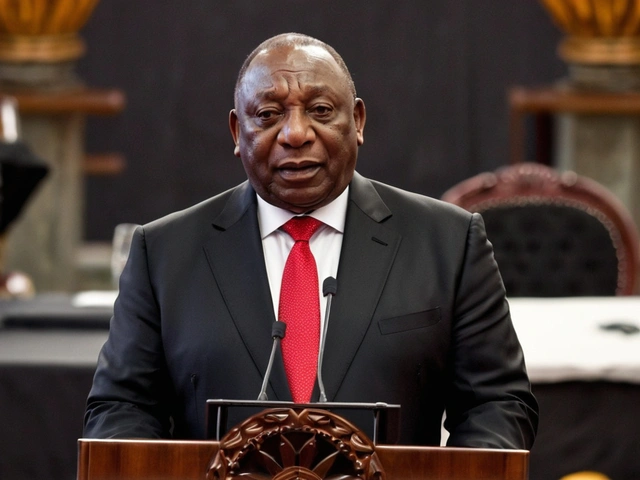
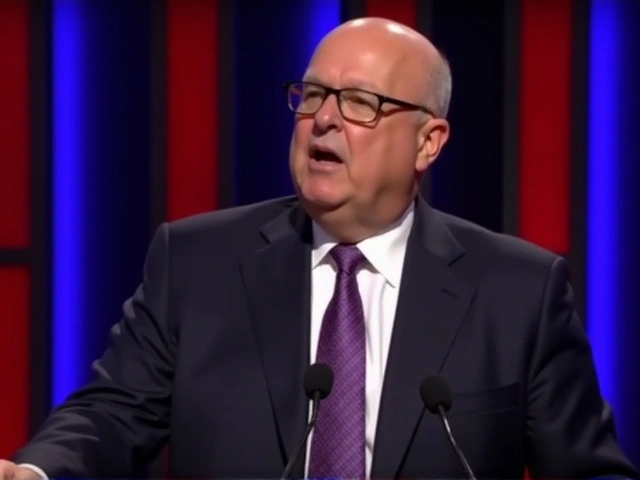
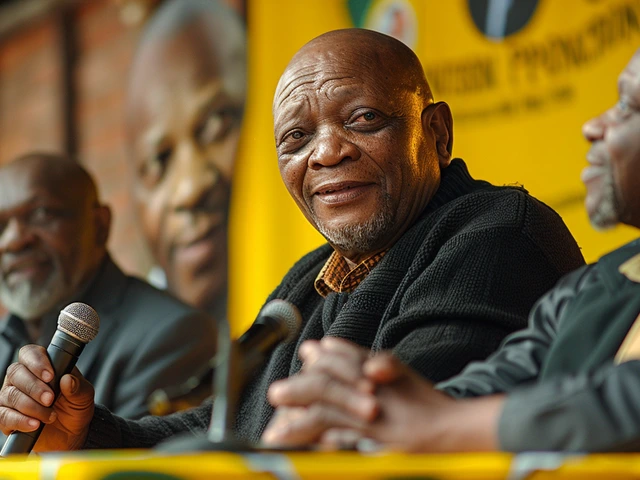
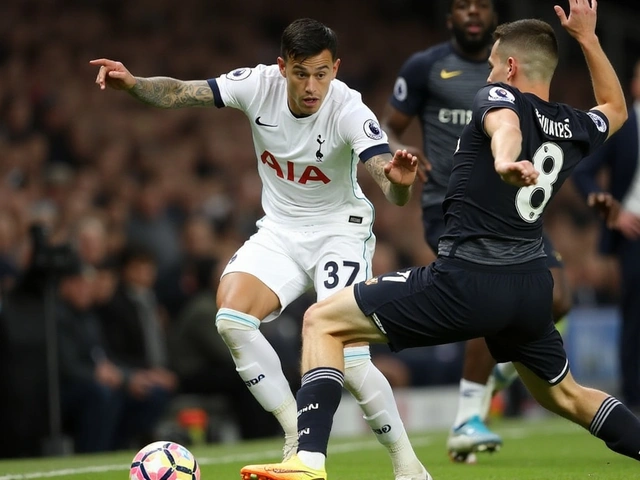
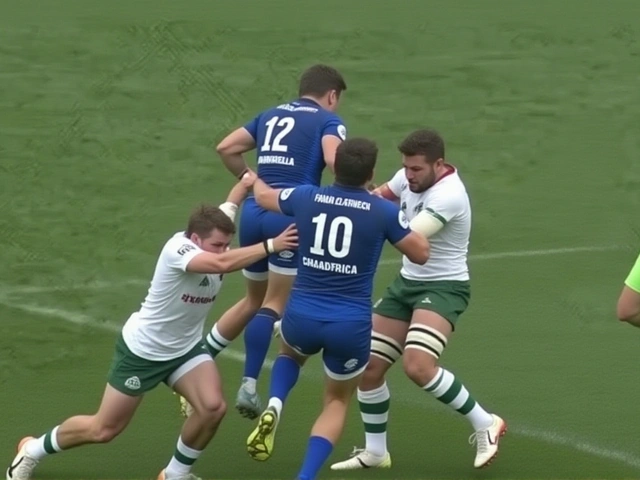

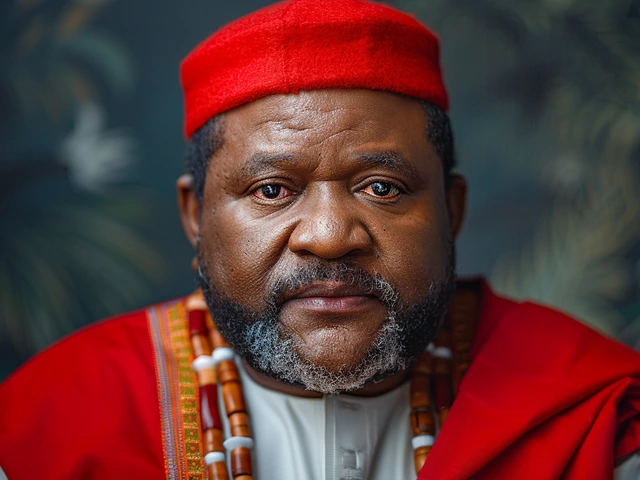
It is both astonishing and inevitable that the ANC, after decades of dominance, now finds itself courting a Government of National Unity; the very notion appears to be a masterclass in political self‑preservation, wrapped in the noble rhetoric of national cohesion. One might argue that this pivot reflects a profound commitment to democratic pluralism, yet the timing suggests a desperate bid to retain relevance amid a precipitous collapse of voter confidence. The historical precedent of Mandela’s inclusive cabinet is often invoked as a guiding beacon, but the contemporary context is riddled with factionalism and ideological fragmentation that renders any simple comparison naïve. Moreover, the ANC’s strategic decision to avoid a bilateral coalition in favor of a broader alliance appears to be a calculated attempt to dilute the influence of any single opposition party, thereby preserving its own bargaining power within a convoluted power‑sharing arrangement. Critics will undoubtedly point to the party’s internal schisms, especially the uprising among youth factions opposed to any accommodation with the Democratic Alliance, as evidence of a leadership out of touch with the electorate’s appetite for genuine transformation. Simultaneously, the macro‑economic challenges-persistent power shortages, soaring unemployment, and entrenched inequality-loom large, demanding more than symbolic unity; they demand decisive policy action that transcends partisan posturing. The invitation extended to the DA, EFF, and MK Party, each bearing distinct ideological baggage, creates a labyrinthine negotiation landscape where concessions may be demanded in exchange for participation, potentially eroding the ANC’s core policy positions. One must also consider the international perception: investors may view an inclusive government as a stabilizing factor, yet any perceived indecisiveness could exacerbate capital flight and erode confidence in South Africa’s fiscal trajectory. The prospect of the EFF demanding the deputy presidency introduces a constitutional quandary that challenges the very architecture of the nation’s democratic institutions. Likewise, the MK Party’s insistence on a constitutional rewrite, coupled with its outright rejection of Ramaphosa’s continued leadership, threatens to destabilize any consensus that might be reached. In sum, the ANC’s maneuvering reflects a paradoxical blend of political ingenuity and overt desperation, a dance that seeks to preserve power while ostensibly championing the greater good of national unity. The ultimate success of this grand coalition will hinge upon the willingness of all actors to subordinate partisan ambitions to the pressing imperatives of economic revitalization, social justice, and the restoration of public trust. Only then can South Africa hope to navigate the treacherous waters that lie ahead, lest it slip further into the abyss of political stagnation and socioeconomic decay.
Yo, this whole GNU thing feels like the backstage drama of a reality TV show where the producers secretly rig the votes. I swear the ANC is pulling strings with some shadowy cabal that wants to keep the "elite" in power while the rest of us get the short end of the stick. The DA being invited to the tent? That's just a smokescreen to lull the investors while the real plan unfolds behind closed doors. And don't even get me started on the EFF's demand for the deputy presidency – classic power grab, right? All these factions are like kids fighting over the last piece of pizza, oblivious to the fact that the whole oven's broken. Remember: if you can't trust the election results, look for the hidden agenda. The truth is out there…
Hey everyone! Great discussion here. I think it’s crucial for South Africans to stay hopeful and keep pushing for inclusive policies. The GNU could be a chance to bring fresh ideas to the table, especially if smaller parties get a voice. Let’s keep the conversation focused on solutions and support leaders who prioritize jobs and education. Together we can inspire positive change!
In the grand tapestry of political theatre, the ANC’s latest maneuver mirrors the age‑old paradox of seeking freedom through restraint. By inviting rivals into the same cabinet, they hope to project unity while clutching at the remnants of authority. Yet, the soul of a nation cannot be legislated; it must be felt. If the coalition merely reshuffles power without addressing systemic injustice, it will be a hollow symphony.
Wow! 🌟 This is such a pivotal moment for SA! 😮 I totally feel the energy buzzing around the idea of a GNU – it could sparkle with new perspectives! 💡 But we also need to be careful 🌈; every voice matters, so let’s make sure the youth aren’t left out! 🙏🏽🤝🤗✨
Ah, the classic “let’s all get along” line-how delightfully naïve. I mean, sure, a grand coalition sounds like a warm hug, but in reality it’s more like a tangled braid of egos, each trying to out‑shine the other. South Africa deserves better than a diplomatic curtain‑call that merely masks the underlying fractures.
Listen up! The ANC’s attempt at a GNU is nothing but a smoke‑and‑mirrors act, and they expect us to applaud this charade? This is absurd. If they think they can keep everyone happy while ignoring the real issues-unemployment, crime, corruption-then they’re delusional. Stop sugar‑coating the nonsense!
Man, politics in SA right now feels like watching a marathon of plot twists. The ANC’s shift to a unity government could be a smart move, or just another round of endless negotiations. Either way, it’ll be interesting to see how the parties juggle their agendas without blowing up the whole thing.
Heena raises some solid points about the complexities of power‑sharing. While the potential for broader representation is welcome, we must stay vigilant to ensure that this coalition doesn’t become a vehicle for diluting accountability. A balanced approach, respecting both democratic ideals and pragmatic governance, is essential.
Let’s keep the momentum going, folks! The idea of a GNU could unlock synergies across policy domains-think cross‑sector collaboration, integrated development frameworks, and data‑driven decision‑making. If we can harness this coalition energy, we might finally see scalable solutions for job creation, infrastructure upgrades, and inclusive growth. Stay optimistic and keep the dialogue constructive!
This nonsense is just political theater.